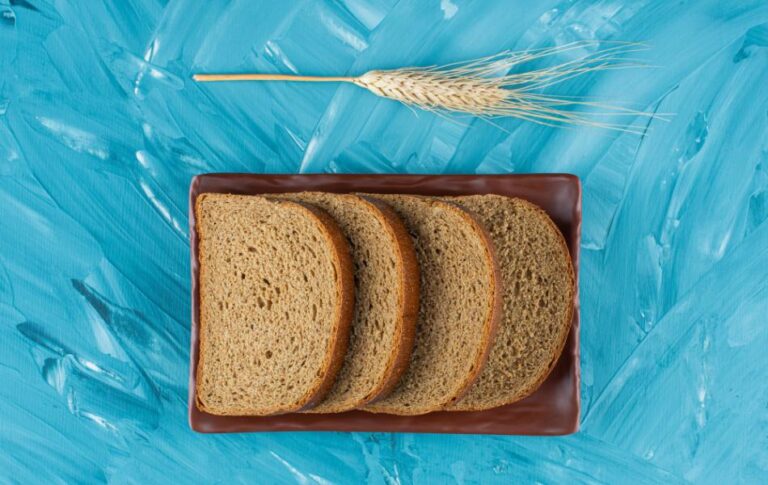Are Scallops Healthy? Nutrients at a Glance
Are Scallops Healthy?
Widely regarded as one of the healthiest seafood options, scallops consist of 80% protein and boast a low-fat content. They contribute to prolonged satiety and are abundant in vitamins and minerals. Additionally, they serve as an excellent source of antioxidants, which actively safeguard the body against cell damage associated with various chronic diseases.
In traditional East Asian medicine, people use scallops to treat conditions such as diabetes and indigestion. Furthermore, current research actively explores the potential of scallop proteins in developing anti-tumor drugs and cancer treatments.
Ongoing research aside, numerous studies indicate that the nutritional content of scallops can provide health benefits. Fresh scallops are typically accessible during the fishing season in your area, while most supermarkets offer them frozen throughout the year.
Nutritional Value of Scallops
Similar to various fish and shellfish, scallops exhibit an impressive nutritional profile. When steamed or boiled, a serving of 3.53 ounces (100 grams) of scallops provides a substantial array of nutrients.
Calories
Scallops offer a moderate calorie count, with approximately 137 kcal per serving. Best enjoyed in small portions due to their rich flavor, they become a suitable addition to your diet without significant concerns about calorie intake.
Protein
Rich in protein, scallops contain approximately 24g per serving, making them an excellent choice for those seeking to gain healthy weight and increase muscle mass. The low-calorie, high-protein combination also deems them beneficial for weight-loss diets.
Carbs
With only 6.33 grams per serving, scallops are a carb-friendly option, suitable for various dietary preferences.
Omega-3 Fatty Acids
Abundant in omega-3 fatty acids, scallops contribute 205 mg per serving, promoting cardiac health by preventing strokes and heart attacks, regulating blood pressure, and lowering cholesterol levels.
Vitamin B12
For Vitamin B12, scallops provide a substantial amount of 2.53 µg per serving. This essential vitamin supports brain development, nerve cells, and the regular production of red blood cells, surpassing daily requirements.
Minerals:
- Calcium: Promotes healthy bones and joints (12 mg).
- Iron: Essential for red blood cell formation (0.68 mg).
- Magnesium: Enhances muscular and cardiac health (44 mg).
- Phosphorus: Aids in the proper growth of bones and teeth (499 mg).
- Potassium: Crucial for nerve function and muscular contractions, especially in cardiac muscles (367 mg).
- Sodium: 660 mg.
- Zinc: Supports the immune system, healing, and cellular regeneration (1.81 mg).
- Copper: Plays a role in energy production, iron metabolism, brain and nervous system development, and immune system support (0.039 mg).
- Selenium: Important for protein and enzyme formation, cell protection, and infection prevention (25.5 µg).
Low Fat
Scallops are low in calories, cholesterol, and unhealthy saturated fats, making them an ideal choice for weight management. Whether you aim to gain or lose weight, scallops can be a healthy and versatile part of your regular diet.
Scallops Health Benefits
Scallops, a delectable seafood delight, are more than just a treat for your taste buds – they are a nutritional powerhouse with various health benefits. Let’s explore the significant advantages of including scallops in your diet.
1. Promoting Heart Health with Scallops
Seafood and scallops are rich sources of omega-3 fatty acids, which research indicates can positively impact heart health. Essential for survival, the human body requires omega-3 and omega-6 fatty acids. The contemporary diet typically contains higher levels of omega-6. Obtaining omega-3s through diet or supplementation is crucial.
Clinical studies have demonstrated the cardiovascular benefits of omega-3 fatty acids. They enhance cardiovascular function by addressing hypertension, increasing HDL (good cholesterol), and reducing LDL (bad cholesterol). Additionally, omega-3s contribute to lowering blood pressure and combating inflammation in arterial walls.
Large-scale investigations reveal a lowered risk of heart disease in individuals with higher omega-3 intake. For instance, a study involving over 63,000 participants showed a 17% reduction in cardiovascular events and mortality rates among those with increased levels of omega-3 fatty acids in their diets.
2. Scallops: Stroke Prevention Boost
Research indicates that the fatty acids in scallops play a crucial role in enhancing blood flow and mitigating clot formation, thereby reducing the risk of strokes. A study revealed that individuals consuming fish abundant in omega-3 fatty acids two to four times weekly experienced a notable decrease in stroke risk, up to 48%.
Moreover, the Vitamin B12 content in scallops contributes to lowering homocysteine levels. These amino acids, when elevated, can inflict damage to blood vessels, potentially leading to strokes. Embracing scallops as part of a balanced diet may offer protective benefits against stroke risk.
3. Seafood Choice for a Healthy Pregnancy
During pregnancy, avoiding mercury-containing seafood is crucial. However, the American College of Obstetricians and Gynecologists (ACOG) designates scallops as a “best” choice, recommending 2–3 servings per week for expectant individuals. Other safe options include shrimp, sole, salmon, and flounder.
Moreover, scallops offer essential nutrients such as iron, B12, calcium, zinc, and protein, making them a beneficial choice during pregnancy. Ensure thorough cooking of scallops before consumption to maximize safety.
4. Weight Management

Scallops, low in calories and rich in protein, can be a smart addition to your weight loss journey. Studies suggest that reducing overall calorie intake while upping protein can aid in weight loss. With scallops as an excellent source of lean protein, research indicates that high-protein diets contribute to a feeling of fullness, potentially supporting weight loss. Additionally, scallop protein contains taurine and glycine, amino acids known to help prevent weight gain and obesity.
5. Nourishing Brain Health
Scallops pack nutrients vital for your brain and nervous system. Ensuring an ample supply of these nutrients supports lifelong brain and nervous system development, potentially lowering the risk of mental conditions like Alzheimer’s and mood disorders.
One research underscores the significance of maternal B12 status during pregnancy for children’s brain development. Supplementing with vitamin B12 before conception has been linked to enhanced brain development in 2-year-olds.
Zinc, another crucial element, plays a role in brain health; a study in Alzheimer ‘s-afflicted mice revealed that zinc deficiency exacerbated cognitive decline by triggering inflammation.
6. Scallops for Muscle Health
Research indicates that scallops, containing magnesium, actively reduce muscle cramps, facilitate tissue repair, and boost muscle strength. Maintaining adequate magnesium levels in your diet can decrease the risk of conditions like osteoporosis, promoting an effective physical recovery.
7. Immune Boost: Antioxidants and Zinc in Scallops
Scallops are a rich source of antioxidants, supporting immune function and reducing inflammation. Their zinc content is essential for immune health, lowering the risk of infections.
Scallop Diet Risks and Considerations
While generally safe for most individuals, scallops may pose potential risks for those with specific conditions. When including scallops in your diet, it’s important to be mindful of the following health considerations:
1. Allergies
While shellfish allergies are common, particularly in adults, reactions often involve shrimp, lobster, and crab. Many with such allergies can still tolerate scallops, fish, and certain mollusks. However, if shellfish allergy symptoms arise, it’s advisable to consult a healthcare provider before consuming more. Be cautious when dining out to avoid cross-contamination between different types of shellfish.
2. Sodium Sensitivity with Scallops
For those sensitive to salt or monitoring sodium intake, it’s crucial to be conscious of scallop preparation methods. Opt for seasonings without salt, as scallops naturally contain higher sodium levels than some other shellfish. A serving provides 660mg (about 29% of the recommended daily intake), contrasting with shrimp at 292mg and oysters at 90mg per serving. Aligning with USDA guidelines, adults are to limit daily sodium intake to no more than 2,300mg.
3. Considerations for Kidney Stones and Gout
Scallops contain purine, a compound that may contribute to the formation of kidney stones and trigger gout in individuals sensitive to it, especially when consumed in high amounts.
4. Heavy Metals in Scallops
Researchers have detected certain heavy metals, such as mercury, lead, and cadmium, in samples of scallops. While the identified levels fall below the threshold deemed hazardous for human consumption, it is essential to note that excessive amounts can potentially lead to health problems, including cancer.
5. Balancing Cholesterol and Fats
Scallops, though low in calories and fat, do contain some cholesterol (48mg) and saturated fat (0.3g) in a 3.5-ounce serving. While not significant, individuals monitoring their intake of these nutrients may want to take note. On the positive side, scallops serve as a good protein source and provide small amounts of carbohydrates and fiber. Additionally, they contain heart-healthy fats like polyunsaturated and monounsaturated fats.
Are Scallops a Healthy Addition to Your Diet?
Scallops offer numerous health benefits as a nutritious, protein-rich, low-calorie option. However, it’s crucial to note potential allergic reactions in individuals with shellfish allergies. Depending on their origin, scallops may contain varying levels of heavy metals and contaminants. Individuals at risk of heavy metal exposure, such as older adults, children, pregnant or nursing individuals, or frequent fish consumers, should be conscious of their seafood choices.
Thankfully, scallops earn the label of a “good choice” or lower-mercury fish by the U.S. EPA and FDA, making them a safe option for many. For optimal benefits, have 2 to 3 servings of ‘good choice’ fish weekly, including scallops. Mix up your choices for a well-rounded seafood intake.
See Also – Are Vienna Sausages Healthy? Let’s Find Out!
Conclusion
In summary, scallops are a nutritious and safe addition to your diet, promoting heart and brain health. Unless you have allergies or specific dietary concerns, like during pregnancy, there’s no significant reason to avoid enjoying the delicious and healthy benefits of scallops in your meals.
Frequently Asked Questions
Are scallops a good protein source?
Yes, a 3-ounce serving has around 20g of protein, making scallops excellent for boosting protein, especially in low-fat diets.
How do scallops measure up to other seafood in terms of health advantages?
Scallops, a nutritious seafood option, are low in calories and rich in protein, aiding in weight management. They supply vital nutrients such as vitamin B12, phosphorus, potassium, and selenium. Notably, their lower mercury levels compared to other seafood make them a safer choice, especially for pregnant women and children.
Can scallops contribute to a healthy weight-loss diet?
Yes, with low calories and high protein, scallops help with satiety and are a low-fat option for weight loss diets.
How often should scallops be consumed for optimal health?
While there’s no specific frequency recommendation, having scallops a few times a week can supply essential nutrients and support weight management.







